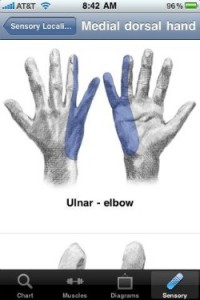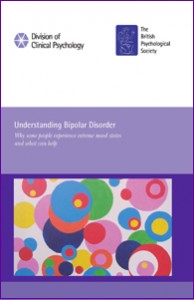Study finds thinking about one’s pet is as beneficial as thinking about friends

istockphoto
Pets can serve as important sources of social and emotional support for “everyday people,” not just individuals facing significant health challenges, according to research published by the American Psychological Association.
And, the study found, pet owners were just as close to key people in their lives as to their animals, indicating no evidence that relationships with pets came at the expense of relationships with other people, or that people relied more on pets when their human social support was poorer.
Psychologists at Miami University and Saint Louis University conducted three experiments to examine the potential benefits of pet ownership among what they called everyday people. The results of the current study were reported in the Journal of Personality and Social Psychology®, published online by APA. [continue reading…]
New educational tool developed by U-M doctor works on iPhones, other personal devices

Nerve Whiz provides hand-held differential diagnosis
With a new application developed by a U-M neurologist, better understanding of the anatomy of the peripheral nervous system can be found right on your iPhone.
Nerve Whiz is a free application for medical professionals interested in learning the complex anatomy of nerve roots, plexuses, and peripheral nerves. It can work on Apple personal devices such as iPhones, iPads and iPods, and will soon be available for Android devices.
The application goes beyond simple nerve charts to help medical professionals interpret clinical examinations. Users select which muscles are weak or point to where the patient has sensory loss and the application provides a differential diagnosis, complete with relevant pictures and diagrams.
“Before you can figure out what is causing neurologic symptoms, you have to determine what part of the nervous system isn’t functioning normally. Neurologists call this ‘localizing the lesion,’” says Zachary London, M.D., assistant professor of neurology, director of the University of Michigan neurology residency program and inventor and developer of Nerve Whiz. [continue reading…]
 For a limited period the British Psychological Society is allowing free downloads to members and non-members during the month of July of the Understanding Bipolar Disorder report . You will have to register with the site but the report is free once you have done so.
For a limited period the British Psychological Society is allowing free downloads to members and non-members during the month of July of the Understanding Bipolar Disorder report . You will have to register with the site but the report is free once you have done so.
The report provides an overview of the current state of knowledge about why some people tend to experience periods of extreme mood and what can help. Much has been written about the biological aspects of bipolar disorders: this report aims to redress the balance by concentrating on the psychological aspects, both in terms of how we understand the problems and also approaches to help and treatment. We hope this report will influence the way in which services are delivered, so that more people have access to psychological treatments and that services will no longer insist that users accept one particular view of their problem.
Source: British Psychological Society
Despite the increase in online scams and malicious websites, internet consumers are 20 per cent more trusting of websites than they were five years ago, according to a new University of Melbourne study.
However, while surfers may be more trusting, online shoppers are 30 per cent less loyal to online businesses than in 2007.
Author of the study, Dr Brent Coker, said the increase in online consumer trust is largely linked to the visual appeal of websites. “As aesthetically orientated humans, we’re psychologically hardwired to trust beautiful people, and the same goes for websites. Our offline behaviour and inclinations translate to our online existence. As the internet has become prettier, we are venturing out, and becoming less loyal.”
“With websites becoming increasingly attractive and including more trimmings, this creates a greater feeling of trustworthiness and professionalism in online consumers.” [continue reading…]



